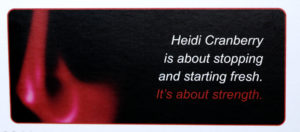How can you naturally increase oxytocin levels?
(From Quora. Answered by Steve LeBlanc. Please note my underlinings.)
Answered Dec 8, 2012
What you might not know is that most hormones work as antagonists to other hormones. In other words, they can balance each other out. When one is released, it tempers or suppresses the over-production of the other. But if you keep over producing one, it can begin to snuff out the other all together.
Now let’s look at some examples. We’ll start with my favorite, oxytocin, and its antagonist testosterone. You might think that the antagonist to testosterone would be estrogen, the feminine hormone, balancing the masculine. And to some degree you’d be right. But testosterone is more powerfully antagonistic to oxytocin, the cuddle hormone, the one that makes you go, “Oooo” when we see something cute. Oxytocin is released during the experience or even the witnessing of loving kindness and affectionate touch, even when you see it on TV. It’s also called the love hormone, the bonding hormone, as well as acting as a stimulant to contractions during pregnancy/birthing. When oxytocin is released, we feel softer, more nurturing, more cuddly, more loving. It changes our visual and mental perceptions allowing us to see the oneness of all things, the interconnectedness of all of us. For a brief moment, it turns us into right-brained systems thinkers, rather than analytical critics. And if you release enough of it, it allows us to see God. Studies have shown that those with high average levels of oxytocin are more likely to believe in God. So can’t we just give people oxytocin directly? Sure, but the half life is only about 3 minutes, meaning the effects fade very quickly.
This brings us back to it’s antagonist, testosterone, the masculine and _aggressiveness_ hormone. It’s released when a breach of trust occurs, making you even more _distrusting_. And as it rises, it suppresses oxytocin. That’s what makes it a chemical antagonist. And just like the antagonist in a good novel, you need a chemical antagonist to keep things in balance in the body. Testosterone makes you more _ogical, linear, rational, and more goal oriented. In societies, it’s testosterone that _keeps an eye out for threats, dangers_ and free loaders, those who would take up resources while returning nothing to the community.
So oxytocin and testosterone. They are both required in a healthy person and a healthy society or culture. The reason we need the protectiveness of testosterone is that not everyone has a healthy regulation of oxytocin. Both biological diversity and abuse results in some people who have little to no oxytocin (or poor regulation). This misregulation of oxytocin has been linked to conditions as diverse as autism and sociopathy. Needless to say, if your oxytocin never gets released it becomes harder to see the point of being loving. There may be rational reason to get along, but there is no compelling biology that would require it of those with poor oxytocin regulation. And without the biological imperative of oxytocin to be loving, we are decidedly self-centered, short sighted and egotistical. Without oxytocin, our testosterone would cause us to be more fear-based in our decisions, or at best, coldly analytical.
The testosterone that gets released when we argue makes us less trusting, more closed minded. The oxytocin that gets released when we reach out to lovingly understand and forgive makes us more trusting and allows us to see world views we didn’t know existed.
So to create more oxytocin naturally, try any or all of the following:
_Stop arguing_. Find ways and opportunities to say, “I was wrong.” Pretty soon, you will learn the value of such admissions and it will actually get to be fun.
_If you must argue, do so from an inquiry point of view_. Ask lots of questions, some of which will begin with, “Are you saying …” and “Do I understand you correctly that …” The more you learn about the other side of the issue, the less positional you will be. You might even use Socratic questions to lead the person into your proposed solution. But that takes some real skill.
_Search out every opportunity to say, “Oooo, isn’t that cute_ (or sweet, or dear, or loving).” Music, poetry, babies, animals, pictures, movies, whatever gets you going. _Allow yourself to be touched deeply_ and savor that connection.
Get touchy. Pet a puppy or a cat, regularly. Get or give a massage. Snuggle. Kiss.
Get hugs every day. Some suggest you need as many as 12 hugs a day to build your immune system, but it also helps your oxytocin. For the more ambitious, learn the difference between giving and getting a hug.
Let the tears flow, when ever you get the chance. Don’t hold them back. Guarding against such strong emotion will only build your testosterone, thus reducing your oxytocin. Get therapy if needed.
Give gifts, particularly to those you are upset with or judging. The body figures if you are giving this person a gift, it must be safe, and it releases oxytocin. Seek out opportunities to give people what they really want or need, even when it’s not something big.
Give to charity. People who give more to charity are statistically more likely to increase their income over the next year, compared to those who don’t. Giving makes you feel like part of the solution, part of something larger than yourself.
Participate in something great, like building the Linux kernel, or ending hunger. Being a part of something larger than yourself builds your ability to see the world as a system, not just a challenge. When you see yourself as part of something great, you get a release of oxytocin.
Have loving sex. It may be the most direct route to boosting oxytocin, which is why you feel so close to one another afterwords. Not so much for casual hookups.
Give thanks. Develop your appreciation with a gratitude journal. Studies show that those who do are happier, in part from having higher oxytocin levels.
Pray and give thanks. Knowing that you are loved and safe has a direct impact on your oxytocin release.
Meditate. Studies show those who do are more clear headed, less stressed and more able to be fully present with those around them. Reduced stress lowers cortisol and testosterone.
Have a baby that you breast feed. The classic way to really boost it.
Be trustworthy and get people to trust you. When people trust you, there is a spike in your oxytocin, making you more likely to trust them.
Choose to trust people, even when it’s hard. This creates changes in others that make them trust you and feel closer to you, thus making your feel closer to them. But be reasonable about it.
Be useful. Volunteer or work in a field where your special skills are made good use of. See the results of the people you help and ask them for feedback. (Watch Secret Millionaire tv show)
_Build empathy_. Feel for others. Don’t just say their plight has nothing to do with you.
Get a coach. Or read books on Happiness research and Life Coaching, as a rich life often increases oxytocin. Like The Moral Molecule



 “… stopping and starting fresh”. You mean, first I finish one bite, then take the next one…?
“… stopping and starting fresh”. You mean, first I finish one bite, then take the next one…?